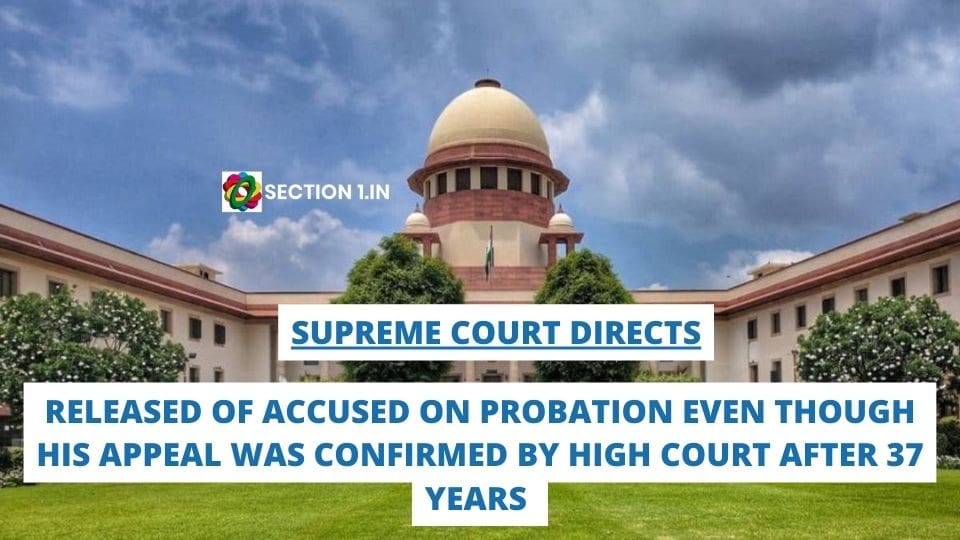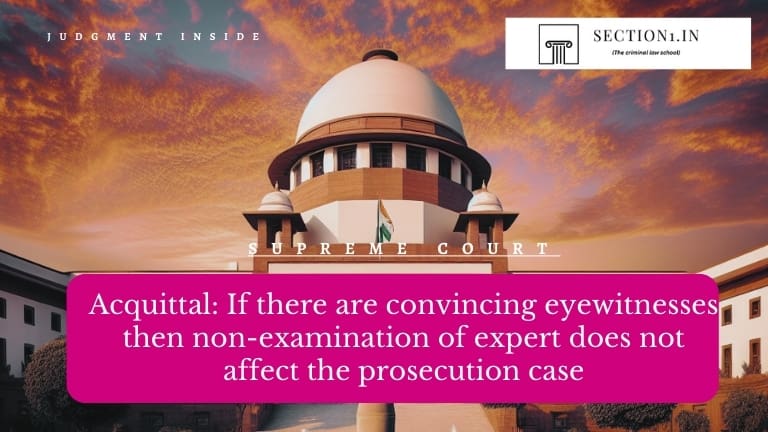ARGUMENTS OF THE APPELLANT
4. The short argument raised by the learned counsel for the appellant is that it is a case where the incident had taken place way back in the year 1985 when the inspection of the grocery shop of the appellant was carried out. More than 37 years have gone by. Though the trial was concluded in less than a year, however, thereafter the matter remained pending in the High Court for a period of more than 31 years. The appellant was on bail throughout. Considering the aforesaid fact, the sentence of imprisonment awarded to him may be set aside and in case this Court finds appropriate, in lieu of sentence, fine may be imposed.
ARGUMENTS OF THE STATE
5. On the other hand, learned counsel for the State submitted that no doubt the incident had taken place more than 37 years back, however, still two courts have found that the offence against the appellant was made out. Under Section 7(1)(a)(ii) of the EC Act, minimum punishment of three months has been provided. However, Ms. Madhumita Bhattacharjee, learned counsel for the State, did not dispute the fact that the proviso of the aforesaid provision clearly stipulates that the sentence less than the minimum prescribed can be awarded for ‘special’ and ‘adequate’ reasons to be recorded.
6. Heard learned counsel for the parties and perused the paper book. The fact that inspection of the shop of the appellant was carried out on 20.8.1985, hence the incident had taken place more than 37 years back. As was pointed out at the time of hearing, the appellant throughout remained on bail. Section 7(1)(a)(ii) of the EC Act under which the appellant has been convicted.
XXX
THE PRESENT CASE OFFENCE WAS COMMITTED BEFORE THE E.C AMENDMENT ACT, 1981(/h5>
7. A perusal of the aforesaid Section shows that the Court may, for adequate and special reasons, impose punishment less than the minimum prescribed in the Section. However, the fact remains that the offence in the case in hand was committed on 20.8.1985 and in terms of the Essential Commodities (Special Provisions) Amendment Act, 1981, the proviso was not in force on that date.
CASE IS MADE OUT FOR GRANT OF BENEFIT OF PROBATION
9. However, still we find that a case is made out for grant of benefit of probation to the appellant for the reason that the offence was committed more than 37 years back and it was not pointed out at the time of hearing that the appellant was involved in any other offence. Before all the courts below, the appellant remained on bail. While entertaining his appeal, even this Court had granted him exemption from surrendering. Section 4 of the Probation of Offenders Act, 1958 has a non obstante clause.
MINIMUM SENTENCE OF EC ACT IS NOT A HURDLE FOR INVOKING PROBATION OF OFFENDERS ACT
10. Even if there is minimum sentence provided in Section 7 of the EC Act, in our opinion, the appellant is entitled to the benefit of probation, the EC Act, being of the year 1955 and the Probation of Offenders Act, 1958 being later. Even if minimum sentence is provided in the EC Act, 1955 the same will not be a hurdle for invoking the applicability of provisions of the Probation of Offenders Act, 1958. Reference can be made to a judgment of this Court in Lakhvir Singh v. The State of Punjab & Ors – (2021) 2 SCC 763.
11. The appeal is accordingly disposed of. The appellant is directed to be released on probation under Section 4 of the Probation of Offenders Act, 1958 on entering into bond and two sureties each to ensure that he will maintain peace and good behaviour for the remaining part of his sentence, failing which he can be called upon to serve the sentence.
PARTY: Tarak Nath Keshari vs. State of West Bengal – Criminal Appeal No. 1444 of 2023 – May 10, 2023.
https://main.sci.gov.in/supremecourt/2018/28476/28476_2018_14_1501_44325_Judgement_10-May-2023.pdf






